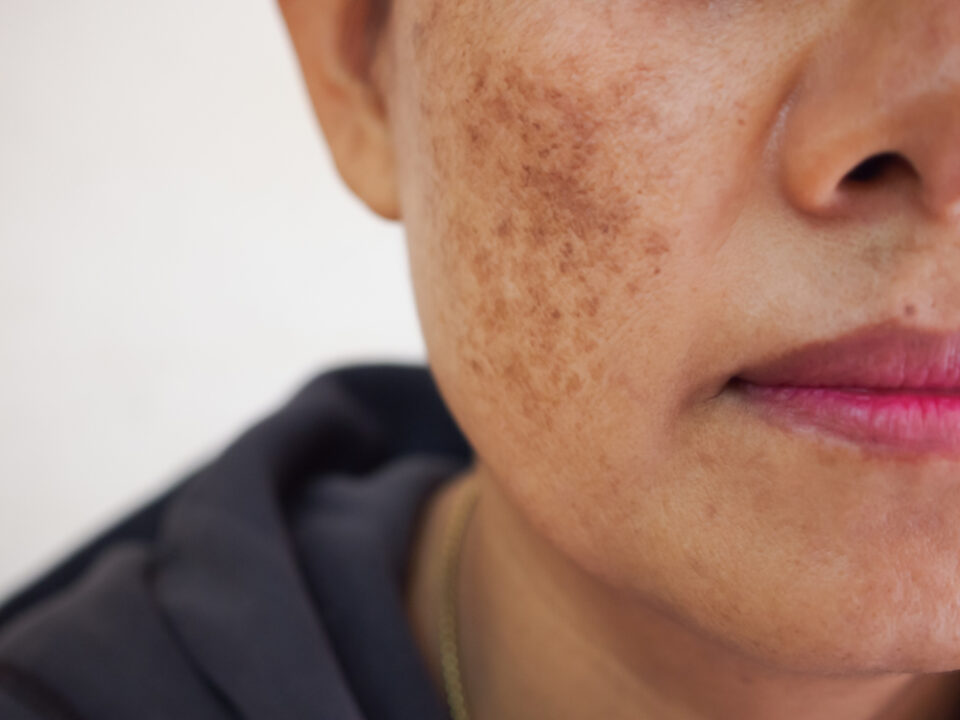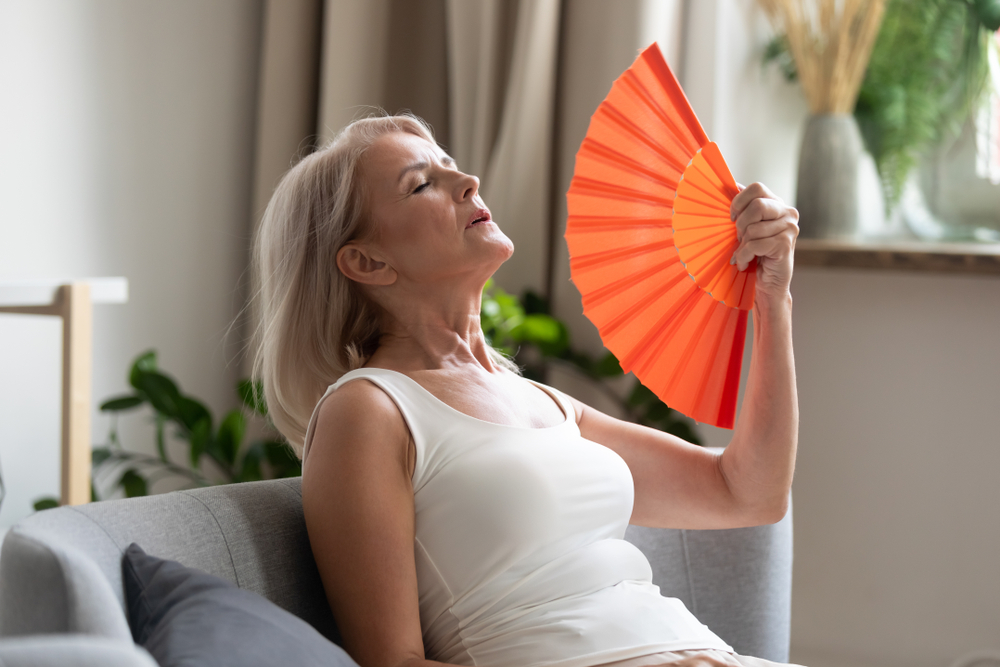When it comes to women’s health, there are countless intimate questions that you may be too embarrassed to talk about or even ask your healthcare professional. However, staying informed should be your top priority as it will help you make appropriate decisions that will eventually benefit you and your overall health.
It’s time to peel back the curtain and address those feminime questions you’re too embarrassed to talk about with your Obstetrician- Gynecologists or even to your girlfriends.

So cast away your fears and doubts as Pharmacist and Retail Manager, Nur Syafa Addina Dzakwan from Ideal Kota Pendamar Pharmacy helps to put you at ease with some interesting points in regards to women’s health.
1Twenty80: Should I Be Worried About My Vaginal Odour?
Nur Syafa Addina Dzakwan: Vaginal odour is usually caused by vaginal discharge. According to the American College of Obstetricians and Gynaecologists, a certain amount of vaginal odour is normal. Many people report smelling a coppery, metallic vaginal odour. Vaginal odour rarely signifies a more serious problem. However, if the odour is strong and noticeable, it’s possible that you might have an infection.
1Twenty80: How Often Should I Get A Pelvic Exam?
Syafa: Pelvic examination and pap smear tests should be done once every three years. As for recommendation, for women at average risk of cervical cancer, between ages of 21 to 29, a Pap smear should be carried out once every three years.
As for recommendation, for women at average risk of cervical cancer, between ages of 21 to 29, a Pap smear should be carried out once every three years.

1Twenty80: If I Experience Pain During Sex, Is There Something Wrong?
Syafa: Experiencing pain during sex is quite common among women, especially if it’s your first time. There are many reasons why you might experience pain during intercourse and one of them could be due to vaginal dryness. If that’s the case, using personal lubricants may help during sexual intercourse.
Painful sex usually has a cause and it can be treated by identifying the underlying cause.
1Twenty80: Is It Normal To Have Heavy Periods?
Syafa: It is quite common to have heavy periods. Be as it may, some may also experience Menorrhagia, unusually heavy or long menstrual periods. Many women experience heavy flow and cramps when their period arrives. However, having Menorrhagia is abnormal and sometimes it could be a subtle indication of serious health conditions. Consult your doctor if you are experiencing unusually heavy periods often.
1Twenty80: What Can I Do About Menstrual Cramps?
Syafa: Period cramps (Dysmenorrhea) are caused by a lack of oxygen reaching the uterus tissue as a result of uterus wall muscular contraction.
To begin, if you experience period pains and cramps, see a healthcare provider to rule out serious health conditions such as:
- Endometriosis
- Fibroids
- Pelvic inflammatory disease
After serious health conditions have been ruled out, you can consider ways to alleviate the pain. Prescription and over-the-counter drugs can help, but non-medicinal activities are more effective.
One of the easiest ways to relieve your menstrual cramps is by taking hot showers, eating more bananas and taking painkillers. Consult your pharmacist for better painkillers options.
1Twenty80: Should I Be Concerned About HPV?

Syafa: The Human Papillomavirus or referred to as HPV is a type of virus that can spread through skin-to-skin contact. More than 150 different HPV strains have been found, with the “high-risk” strains being the subset of strains linked to an elevated cancer risk.
Despite the growing cognizance of HPV, there is still plenty of misinformation about the virus and the vaccine that could prevent it.
Each year, nearly 13 million people in the United States become infected with HPV, according to the Centers for Disease Control and Prevention (CDC). Another point highlighted in the studies was that HPV is so common that almost everyone who engages in sexual activity will contract the virus at some point in their lives.
1Twenty80: Will The Long-Term Use Of Contraceptives, Like Birth Control Pills And Intrauterine Devices (Iuds), Increase The Risk Of Cervical Cancer?
Syafa: Birth control comes in a variety of forms and using any of them for an extended period of time is generally regarded as safe. However, do take note that long-term use may have certain negative consequences such as an increased risk of blood clots as well as breast cancer.
Nevertheless, not all of the consequences are negative. Using birth control for an extended period of time has also been linked to a lower risk of ovarian, endometrial and colorectal cancers.
1Twenty80: If I Am Noticing More Pigmentation On My Face, Am I At Risk Of Getting Skin Cancer?
Syafa: Less pigmented skin (melanin) means you have less protection from damaging Ultraviolet (UV) radiation. So, if you have very fair skin or have had a lot of sunburns, chances to develop skin cancer is likely to be high. On a side note, if you notice pigmented lesions or patches on your skin, for instance your face, that appear to alter over time, it is best to get it checked by a specialist.
1Twenty80: How Often Should I Go For A Mammogram And Does It Hurt?
Syafa: Mammography does compress the breasts and can sometimes cause slight discomfort for a very brief period of time. Patients who are sensitive should schedule their mammograms a week after their menstrual cycle so that the breasts are less tender. Women between the age of 40 to 50 should get a mammography once a year. If you’re above the age of 50, a mammography should be done every two years.
Menopause is unquestionably an adventure. there’s no apparent beginning or finish point, strange detours, and an anticipated arrival time when it comes to menopause.
1Twenty80: How Do I Know When Menopause Starts?

Syafa: Menopause is unquestionably an adventure. There’s no apparent beginning or finish point, strange detours, and an anticipated arrival time when it comes to menopause.
The first point of interest is this – Perimenopause.
At this time, your body will begin to give you physical signs that the menopausal process is beginning. This process could start years after you had your last menstrual cycle.
Irregular periods, hot flashes, vaginal dryness, sleep difficulties, and mood swings are all frequent, normal symptoms caused by unevenly varying levels of ovarian hormones (oestrogen) in your body.
1Twenty80: Should I Be Worried About Uneven Breasts?
Syafa: Many things come in pairs, but breasts aren’t usually one of them. Breasts begin to develop during adolescence or your teenage years. However, one breast may develop faster than the other.
Breast Asymmetry occurs when the size, shape or the position of your breasts do not match. This condition can be detected as early as puberty. Plus, it’s also quite common among many women. Nonetheless, it is still unclear why this occurs.
Genetics can be a reason as to why this occurs. With that implied, you will most likely have Breast Asymmetry if your mother or grandmother had uneven breasts.
1Twenty80: Do Some Supplements Increase My Breast Size?
Syafa: Supplements that contain Phytoestrogen can cause breast enlargement. Phytoestrogen is an oestrogen-like substance that aids in the stimulation and retention of fluids and promotes breast tissue growth. When you use phytoestrogen- rich products, you can expect a bigger, fuller and firmer breast. This can be beneficial to breastfeeding mothers because it increases milk production while also assisting in the growth of larger nipples.
1Twenty80: How Can I Keep My Breasts Healthy?

Syafa: Breast cancer occurs frequently in women who have no risk factors, but you can help yourself by practising the following routines all year: observe, self-examine, and screen.
Although most lifestyle variables have only a minimal impact on breast cancer risk. Some of the ways to keep your breast and body healthy includes:
- Maintain a healthy body mass index (BMI).
- Regular exercise should be a priority.
- Alcohol should be consumed in moderation or avoided entirely.
- Increase your vegetable intake.
- Breastfeeding mothers have a slightly lower risk of breast cancer if they nurse their babies for six months or longer.
- A monthly breast self-examination is recommended.
- Quit unhealthy habits like smoking.














